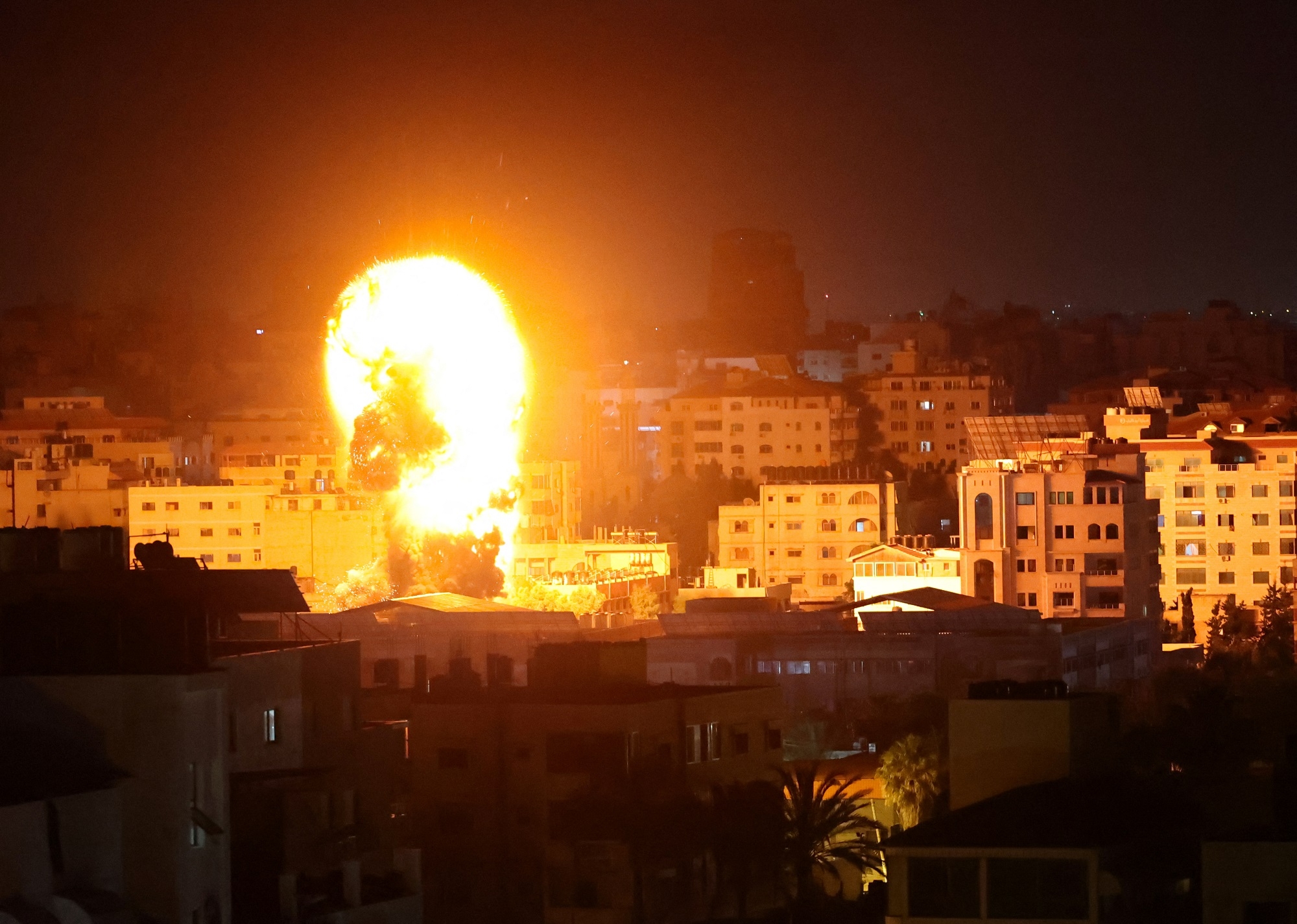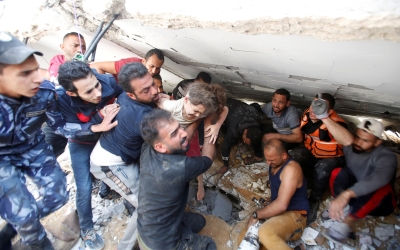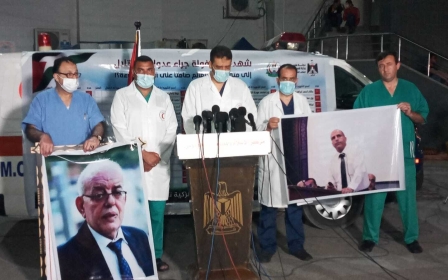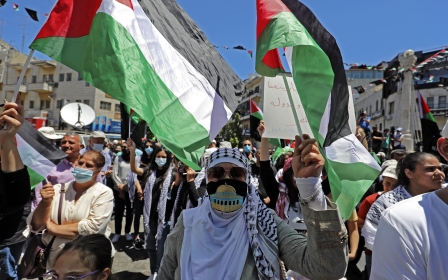Gaza: Calls for ceasefire grow, but Israel pushes on with war

Israel is pushing on with its war on Gaza despite growing international calls for a ceasefire and a mounting death toll in the besieged Palestinian territory.
Gaza woke up to carnage on Sunday with rescuers trying to pull survivors and bodies from under the rubble of homes targeted throughout the previous night. The death toll of 42 was the highest since the Israeli offensive began.
At night, Gaza endured renewed bombardment with dozens of air strikes from the Israeli military.
Hamas continued to fire rockets towards Israel on Sunday. The health ministry in Gaza reported that at least 197 Palestinians have been killed in Israeli attacks. Palestinian rockets have killed 10 Israelis.
Calls for an immediate ceasefire gained some momentum at the international level, but the Israeli government showed no signs of stopping the offensive.
New MEE newsletter: Jerusalem Dispatch
Sign up to get the latest insights and analysis on Israel-Palestine, alongside Turkey Unpacked and other MEE newsletters
Prime Minister Benjamin Netanyahu reiterated his stance that the war will go on "as long as necessary" after a cabinet meeting on Sunday, saying that attacks on Gaza will continue in "full force".
"We are acting now, for as long as necessary, to restore calm and quiet to you, Israel's citizens. It will take time," Netanyahu said.
UN meeting
A UN Security Council meeting failed to produce any results, amid media reports that Washington is continuing to block a joint statement calling for an immediate ceasefire.
UN Secretary-General Antonio Guterres said the fighting was "utterly appalling" and called for an end to it. "Fighting must stop. It must stop immediately," he said.
But the Security Council did not call for a ceasefire. Instead, Tunisia, Norway and China released their own joint statement calling for an urgent end to the war.
"Norway, Tunisia and China expressed deep concern about the situation in Gaza and the rising number of civilian casualties, and called for an immediate end of hostility, full respect for international law, including international humanitarian law and the protection of civilians, especially children," the statement, read by Norway's envoy Mona Juul on Sunday, said.
Sunday's Security Council meeting was the first open session on the crisis following two previous meetings behind closed doors.
US envoy to the UN Linda Thomas-Greenfield said the human toll of the fighting has been "devastating", delivering more moderate remarks than previous comments from the administration of President Joe Biden that offered unquestioning support for Israel.
"The United States calls on all parties to ensure the protection of civilians and to respect international humanitarian law," Thomas-Greenfield said. "We also urge all parties to protect medical and other humanitarian facilities as well as journalists and media organisations."
A day earlier, Israel had bombed a tower housing the offices of foreign media outlets, including the Associated Press, Middle East Eye and Al Jazeera. Israeli shelling had also killed two Palestinian doctors earlier on Sunday.
"The United States has made clear that we are prepared to lend our support and good offices, should the parties seek a ceasefire because we believe Israelis and Palestinians - equally - have a right to live in safety and security," the US envoy said. "The current violence has deprived both communities of this basic right."
But when it came to walking to talk, Thomas-Greenfield blocked a joint statement backing an immediate ceasefire, the Times of Israel reported citing several diplomats.
Biden's unequivocal statements of support for what he calls "Israel's right to defend itself" has been interpreted as a greenlight for Netanyahu to continue the war.
Ceasefire calls
In Washington, leading Democrats appeared to lose patience with the administration's reluctance to call for an end to the fighting.
"To prevent any further loss of civilian life and to prevent further escalation of conflict in Israel and the Palestinian territories, we urge an immediate ceasefire," 28 Democratic senators said in a joint statement.
Senator Todd Young, a top Republican, also joined Democrat Chris Murphy in calling for a ceasefire.
Secretary of State Antony Blinken intensified diplomatic efforts on Sunday, holding phone calls with his Egyptian, Saudi, Qatari, Pakistani and French counterparts. Statements from the administration announcing the call urged an end to the violence but fell short of an explicit call for a ceasefire.
"Spoke today with Egyptian Foreign Minister Shoukry to discuss the ongoing violence in Israel, West Bank, and Gaza. All parties need to de-escalate tensions - the violence must end immediately," Blinken said in a tweet.
But the diplomatic movement and apparent shift in the tone from the US administration did not spare Gaza another night of heavy bombardment.
The Israeli military conducted more than 100 air strikes on the enclave late on Sunday and in the early hours of Monday morning, Palestinian news agency Wafa reported. The raids targeted houses and government buildings, including a four-storey home near al-Shifa hospital, Gaza's main medical facility.
Wafa cited its correspondent as confirming casualties, including women and children without specifying the numbers. It said medics faced difficulties reaching scenes of the attacks and transporting the wounded because the Israeli military had bombed many roads leading to hospitals.
The bombardment also damaged power lines leading to electricity cuts across large areas of Gaza.
Middle East Eye delivers independent and unrivalled coverage and analysis of the Middle East, North Africa and beyond. To learn more about republishing this content and the associated fees, please fill out this form. More about MEE can be found here.






